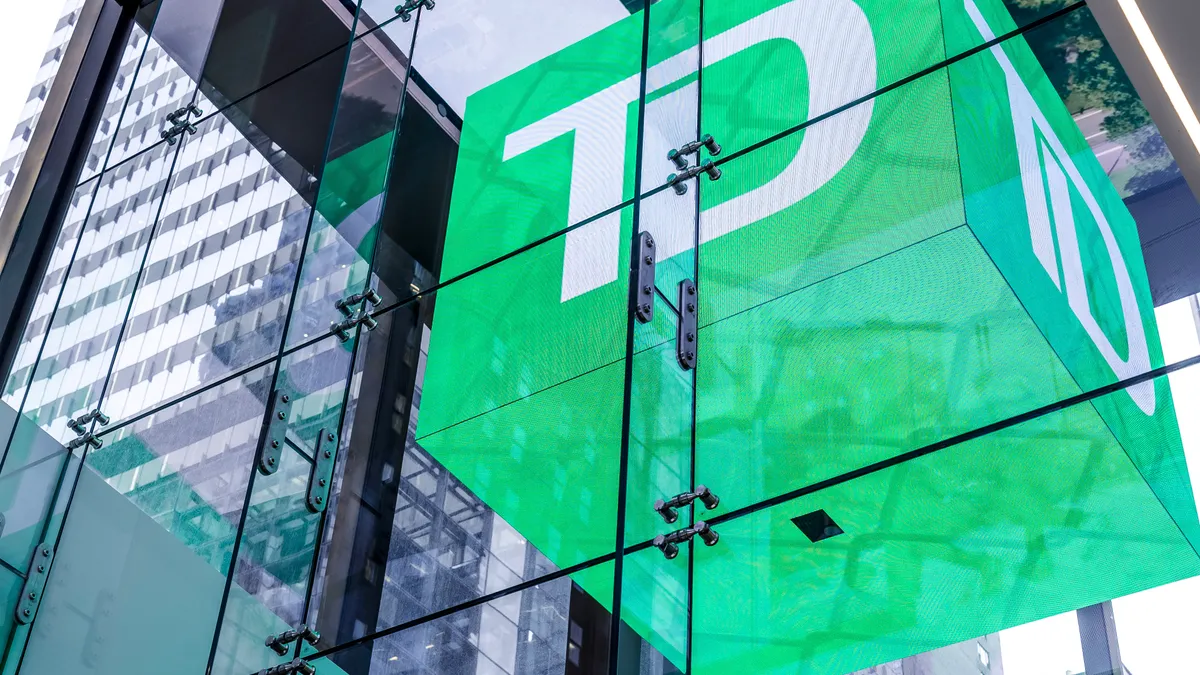TD CEO Bharat Masrani reiterated Thursday the bank “[sees] the benefits” of its proposed $13.4 billion acquisition of Memphis, Tennessee-based First Horizon.
"We've outlined [them] very clearly and I've said that many times before,” Masrani said Thursday at TD's annual general meeting, according to Reuters. “That's why we are into extension discussions with First Horizon.”
An extension would push the deadline for closing the deal beyond May 27 and mark the second delay the transaction has faced.
The tie-up was given a Feb. 27 termination date when it was first proposed, and TD, at the time, was so confident the deal would close within that frame that it offered to pay an additional $0.65 per share if it was completed after Nov. 27, 2022.
The banks agreed in early February to extend the termination date to May 27. But three weeks later, First Horizon disclosed in a Securities and Exchange Commission filing that TD said it did not expect to receive the regulatory approvals necessary to complete the deal by the new date.
In its first-quarter earnings report Tuesday, First Horizon said TD “cannot provide a new projected closing date” and that there were “no further updates at this time.”
Much has changed in the banking landscape, though, since First Horizon’s early-March SEC filing. Silvergate, Signature and Silicon Valley Bank failed, spurring investors in regional banks like First Horizon into a crisis of confidence.
First Horizon’s stock price cratered by as much as 33% on the morning after Signature failed, and trading was halted temporarily.
Less than half of First Horizon’s deposits were uninsured as of the end of last year, the bank’s filings show. By comparison, more than 92% of SVB’s deposits were uninsured.
Value has continued to erode nonetheless. First Horizon shares sank by 26% last week, according to Bloomberg, pushing the price to nearly 40% less than when TD proposed acquiring the Memphis lender. That has led to speculation that TD may want to renegotiate or cut and run.
Masrani declined to comment to Reuters when asked Thursday if TD was reviewing the deal’s financial terms. He told analysts in January he was awaiting regulatory approval from U.S. agencies.
“That is an unknown,” he told a conference, according to The Globe and Mail. “The latest deals seem to take longer than [they] used to.”
The timeline to potential approval could stretch even longer now that “US regulators have their hands full with more immediate banking issues,” Paul Gulberg, a Bloomberg Intelligence analyst said.
“You have recession concerns, weaker bank stocks — but no question there are added layers of scrutiny that have created lengthy delays and caused a lot of nervousness around [mergers and acquisition],” Jacob Thompson, managing director of investment banking at Samco Capital Markets, told American Banker.
If TD sticks with its acquisition plans as written, management will have to answer two questions, Sohrab Movahedi, an analyst for BMO Capital Markets, told Bloomberg: “Did they get the best asset available?” he said. “And did they get the best possible price for the asset?”
A day after First Horizon’s SEC filing, Masrani sought to reassure investors.
“This is a great transaction that offers scale and new capabilities to our US franchise,” he said.
Since then, however, “risk premiums for US regional banks have increased materially,” Canadian Imperial Bank of Commerce analyst Paul Holden wrote in a note, according to Bloomberg.













